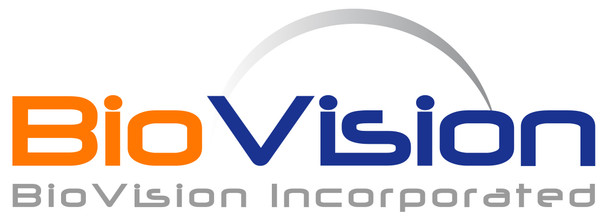Description
Human CellExp™ PDGFRb/CD140b, human recombinant is available at Gentaur for Next week delivery.
Binds specifically to PDGFB and has a tyrosine-protein kinase activity
Biomolecule/Target: PDGFRb/CD140b
Alternates names: PDGFRB, PDGFR-B, CD140B, CD-140B, JTK12, JTK-12, PDGF-R-beta, PDGFR, PDGFR1, PDGFR-1, PDGFR-beta, PDGFR-β, PDGF-R-β
Synonyms: PDGFRB, PDGFR-B, CD140B, CD-140B, JTK12, JTK-12, PDGF-R-beta, PDGFR, PDGFR1, PDGFR-1, PDGFR-beta, PDGFR-β, PDGF-R-β
Background Information: Human platelet-derived growth factor receptor, beta polypeptide (PDGFRB), also called J03278, M21616, CD140B, JTK12, PDGF-R-beta and PDGFR, is receptor that binds specifically to PDGFB and has a tyrosine-protein kinase activity. Is a cell surface tyrosine kinase receptor for members of the platelet-derived growth factor (PDGF) family. The PDGFR/PDGF system includes two receptors (PDGFRA and PDGFRB) and four ligands (A, B, C and D). The receptors PDGFRA and PDGFRB are related in sequence and both are members of the class III subtype of receptor tyrosine kinases (RTKs). Other class III RTKs are CSF1R, KIT and FLT3. PDGF binding induces receptor homo- and heterodimerization and signal transduction. The expression of the α and β receptors is independently regulated in various cell types. Recombinant soluble PDGFRB binds PDGF with high affinity and is potent PDGF antagonist. The ligands form either homo- or heterodimers (PDGF-AA, -AB, -BB, -CC, -DD). The four PDGFs are inactive in their monomeric forms. The PDGFs bind to the protein tyrosine kinase receptors PDGF receptor-α and -β. These two receptor isoforms dimerize upon binding the PDGF dimer, leading to three possible receptor combinations, namely -αα, -ββ and -αβ. PDGF-CC specifically interacts with PDGFR-αα and -αβ, but not with –ββ, and thereby resembles PDGF-AB. PDGF-DD binds to PDGFR-ββ with high affinity and to PDGFR-αβ to a much lower extent and is regarded as PDGFR-ββ specific. PDGF-AA binds only to PDGFR-αα, while PDGF-BB is the only PDGF that can bind all three receptor combinations with high affinity.
Reconstitution Instructions: Centrifuge the vial prior to opening. Reconstitute in sterile PBS, pH 7.4 to a concentration of 50 µg/ml. Do not vortex. This solution can be stored at 2-8°C for up to 1 month. For extended storage, it is recommended to store at -20°C.
NCBI Gene Symbol: PDGFRB
Gene ID: 5159
NCBI Accession: P09619
Additional Information
Size: |
50 μg |
Country of Manufacturing Origin: |
USA |
Country of Animal Origin: |
USA |
Gene Source: |
Human |
Recombinant: |
Yes |
Source: |
HEK293 cells |
Purity by SDS-PAGE: |
≥95% |
Assay: |
SDS-PAGE |
Purity: |
N/A |
Assay 2: |
N/A |
Endotoxin Level: |
<1 EU/μg by LAL method |
Activity (Specifications/test method): |
N/A |
Biological activity: |
Measured by its ability to inhibit the biological activity of PDGFBB using NR6R-3T3 mouse fibroblast cells. The ED50 for this effect is typically 3-8 μg/ml in the presence of 4 ng/ml rhPDGFBB. |
Results: |
Measured by its ability to inhibit the biological activity of PDGFBB using NR6R-3T3 mouse fibroblast cells. The ED50 for this effect is typically 3-8 μg/ml in the presence of 4 ng/ml rhPDGFBB. |
Molecular Weight: |
This protein contains C-terminal polyhistidine tag and has a calculated MW of 57.1 kDa. As a result of glycosylation, DTT-reduced protein migrates as 85-95 kDa polypeptide in SDS-PAGE. |
Storage Temperature: |
-20°C |
Shelf Life: |
12 months |
Concentration: |
N/A |
Appearance: |
Lyophilized |
Handling: |
Centrifuge the vial prior to opening. |






